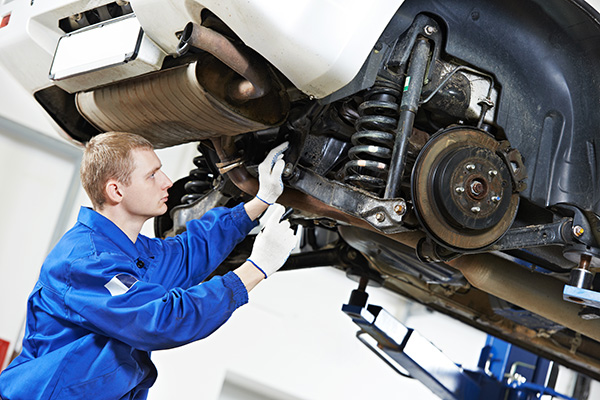
Hearing a squeak every time you press the brake pedal can be irritating—and it is often a sign that your brakes need attention. While some occasional brake noise can be harmless, persistent squeaking can indicate worn parts, a buildup of debris, or even more serious issues with your braking system.
Knowing what causes brake squeaks and how to address them is key to keeping your vehicle safe and your braking system in good condition.
Why Brakes Squeak
Brakes work by pressing brake pads against rotors to slow the vehicle. This process naturally generates friction, and under certain conditions, it can also produce noise. A squeak happens when vibrations in the braking components create high-pitched sound waves.
Sometimes the noise is caused by harmless conditions, such as a light coating of surface rust on the rotors after the car has been parked in damp conditions. But if the squeak happens every time you stop, there is likely a mechanical reason behind it.
Worn Brake Pads
One of the most common causes of squeaking is worn brake pads. Most modern pads are equipped with wear indicators—small metal tabs that make contact with the rotor when the pad material is nearly gone. This creates a squeaking or squealing sound designed to alert you that it is time for new pads.
If the pads are not replaced promptly, the squeak can turn into a grinding noise as the metal backing of the pad contacts the rotor. At that point, you may need rotor replacement as well as new pads.
Glazed Pads or Rotors
Brake pads and rotors can become glazed when they overheat, typically due to excessive braking or prolonged braking. This glazing hardens the surfaces, reducing braking performance and causing squeaks.
Glazed pads and rotors often require resurfacing or replacement to restore proper braking performance and eliminate noise.
Debris Between Pads and Rotors
Small stones, dust, or rust particles can become trapped between the brake pad and rotor, causing squeaks or scraping noises. This is especially common if you drive in areas with a lot of dirt or road salt.
A thorough brake cleaning can remove the debris and restore quiet operation.
Moisture and Surface Rust
If your brakes only squeak the first few times you use them in the morning, moisture and surface rust may be to blame. Overnight dampness can create a thin layer of rust on the rotors. This rust is quickly worn away when you start driving, which also removes the squeak.
While this type of squeak is harmless, it should disappear after a few stops. If it does not, have your brakes inspected.
Improper Pad Installation or Low-Quality Pads
Using low-quality brake pads or installing them incorrectly can cause constant squeaking. Cheap pads often use harder materials that make more noise, while improper installation can cause uneven contact with the rotor.
High-quality pads matched to your vehicle and installed correctly will usually provide quieter, more consistent braking.
Why You Should Not Ignore Squeaking Brakes
Even if your vehicle still stops well, persistent brake squeaks should not be ignored. The noise is often an early warning of worn parts, and addressing it quickly can prevent more expensive repairs. Brake performance directly affects your safety, so it is always worth having a professional inspect the system.
How to Prevent Brake Squeaks
Regular brake inspections are the best way to prevent squeaks from becoming serious problems. Choosing quality pads, replacing them before they are completely worn, and keeping the braking system clean all help minimize noise. Avoiding hard or prolonged braking when possible also helps reduce wear and heat buildup.
Brake Service at Auto Pro in Reading, PA
If your brakes squeak every time you stop, Auto Pro in Reading, PA can help. Our technicians will inspect your entire braking system, identify the cause of the noise, and recommend the right repair—whether it is replacing worn pads, resurfacing rotors, or cleaning debris from the system.
Schedule your brake service today and drive with confidence knowing your brakes are safe, quiet, and effective.